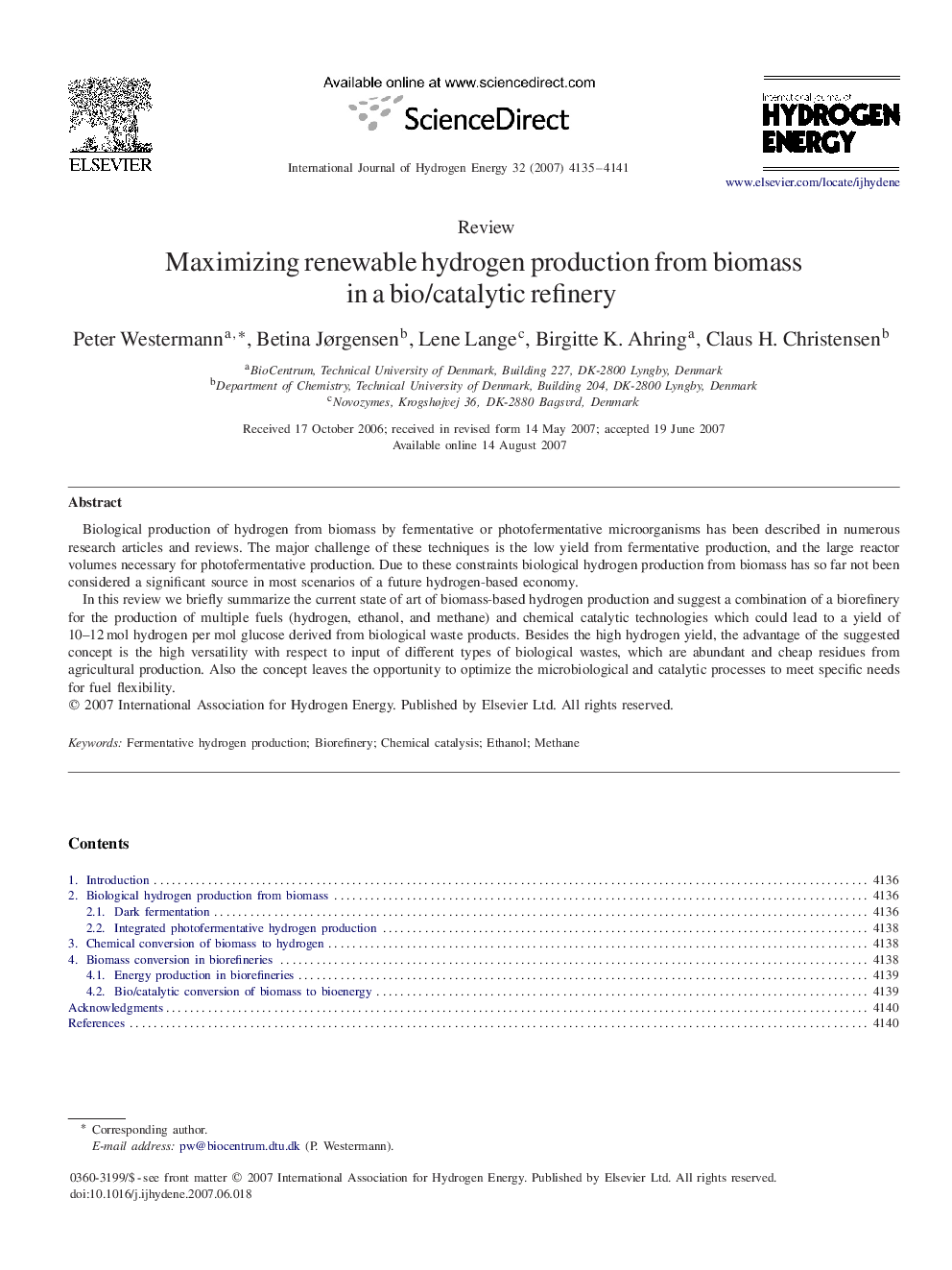| Article ID | Journal | Published Year | Pages | File Type |
|---|---|---|---|---|
| 1281788 | International Journal of Hydrogen Energy | 2007 | 7 Pages |
Biological production of hydrogen from biomass by fermentative or photofermentative microorganisms has been described in numerous research articles and reviews. The major challenge of these techniques is the low yield from fermentative production, and the large reactor volumes necessary for photofermentative production. Due to these constraints biological hydrogen production from biomass has so far not been considered a significant source in most scenarios of a future hydrogen-based economy.In this review we briefly summarize the current state of art of biomass-based hydrogen production and suggest a combination of a biorefinery for the production of multiple fuels (hydrogen, ethanol, and methane) and chemical catalytic technologies which could lead to a yield of 10–12 mol hydrogen per mol glucose derived from biological waste products. Besides the high hydrogen yield, the advantage of the suggested concept is the high versatility with respect to input of different types of biological wastes, which are abundant and cheap residues from agricultural production. Also the concept leaves the opportunity to optimize the microbiological and catalytic processes to meet specific needs for fuel flexibility.
